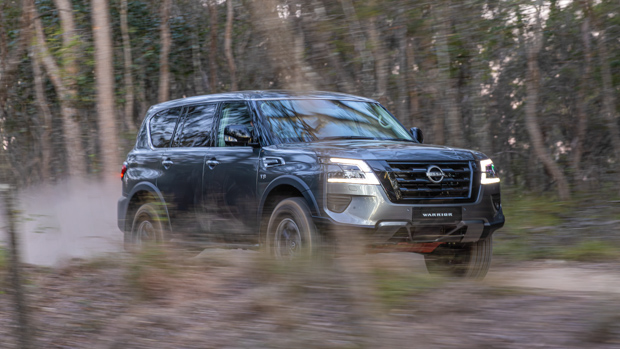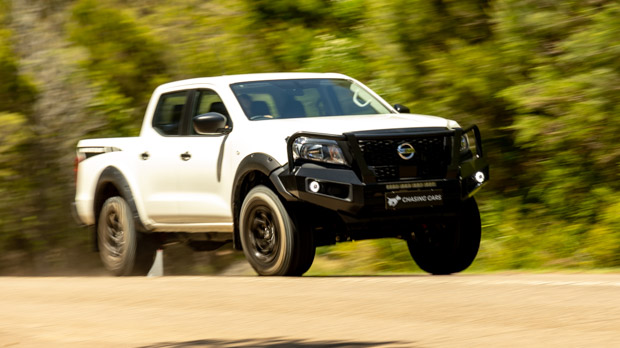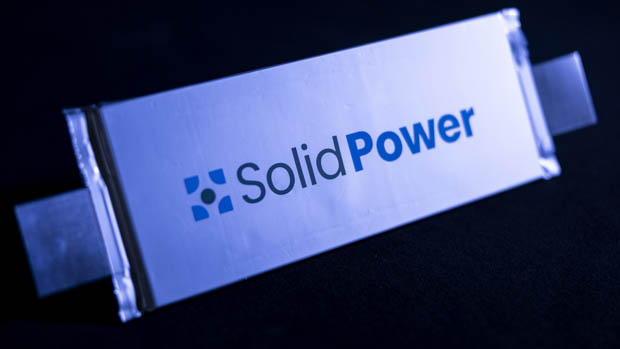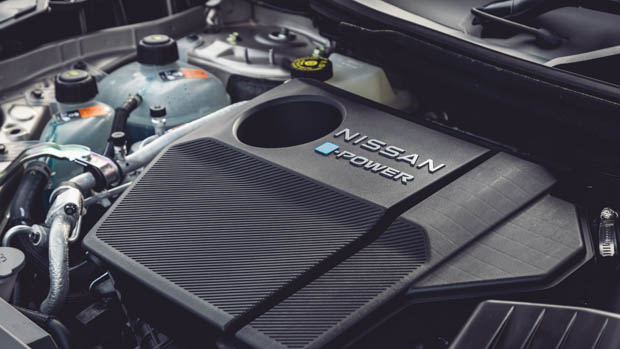-
Car Reviews
- All reviews
- Midsize SUVs
- Small cars
- Utes
- Small SUVs
- Large SUVs
- Large cars
- Sports SUVs
- Sports cars
- Vans
Latest reviews
- Car News
-
Car Comparisons
Latest comparisons
- Chasing Deals
Nissan says that fully-electric Patrol and Navara replacements are planned – but that cheaper and better next-generation batteries will be needed
Nissan will wait to launch a fully-electric version of its Patrol four-wheel drive and Navara pick-up until solid-state battery technology is ready, according to a senior brand executive.
Guilliame Cartier, Nissan senior vice president for Oceania, spoke with Australian media about heavy-duty EV products at a recent Nissan Patrol Warrior prototype drive.
Mr Cartier suggested that neither the Navara ute or the Patrol four-wheel drive were the right fit for hybrid powertrains – but that the right time for the electrification of these heavier-duty, more capable models would be when solid-state batteries are ready for production.
“These types of car lean towards solid-state battery technology,” Mr Cartier said. “The heavier the car, the more difficult it is to electrify it. If you want to keep the capability, and the car weighs more than two tonnes, the battery you will need to have is heavy and expensive.
“People using the [Navara] and Patrol have multi-usage. Some people use them only for entertainment, but others are working too. That’s specific to Australia. For them, the cost of ownership is key. If we can electrify them [as hybrids] but the surcharge is $10,000, you might lose some of them.”
As a result, Cartier said that Nissan is examining how to electrify heavy-duty, mixed-use models like the Patrol and Navara without allowing a large battery to overwhelm the value for money proposition.
“Can I make sure that when I electrify, it will still be cost-competitive for the owner? That is why the answer of a solid-state battery is a good one. You can reduce the cost per kilowatt-hour [of battery size] by more than 50 percent [compared to today’s batteries].”
Nissan is investing heavily in solid-state battery (SSB) tech and Chasing Cars understands that if SSBs can be mass-produced cheaply, the Japanese marque intends to be a market leader in introducing SSBs to its range of vehicles.
The brand has stated its intention to produce SSBs on a small scale in 2025 and conduct significant real-world testing in 2026 before starting mass production – and realising the associated cost savings for new EV models – in 2028.
SSB technology, which will allow similar-sized batteries to today’s full EVs but with much greater energy density – meaning a 40-60 percent range improvement without increasing the size or weight of the battery pack.
This could mean that a circa-100kWh solid-state battery, which could easily be packaged in a vehicle the size of a Patrol or Navara – could deliver more than 600km of driving range.
On the other end of the scale, SSBs also allow car manufacturers to downsize the battery pack for lighter-duty vehicles – including sports cars – to preserve lighter kerb weight while still delivering reasonable range.
For example, a future fully-electric Nissan Z coupe might use a relatively lightweight 45kWh solid-state battery while still being capable of delivering around 400km of driving range.
In the meantime, the company is rolling out small-scale lithium-ion batteries in hybrid models, including the X-Trail E-Power midsize SUV, which uses a 1.8kWh usable battery and twin electric motors supplied by electricity generated by a 1.5-litre turbo petrol engine.
Early 2024 will see the introduction of the Nissan Ariya fully-electric midsize SUV in Australia as a sibling to the X-Trail. The Ariya will likely be offered locally with a choice of 63kWh or 87kWh lithium-ion battery packs delivering a range of up to 516km.
Latest news
About Chasing cars
Chasing Cars reviews are 100% independent.
Because we are powered by Budget Direct Insurance, we don’t receive advertising or sales revenue from car manufacturers.
We’re truly independent – giving you Australia’s best car reviews.



